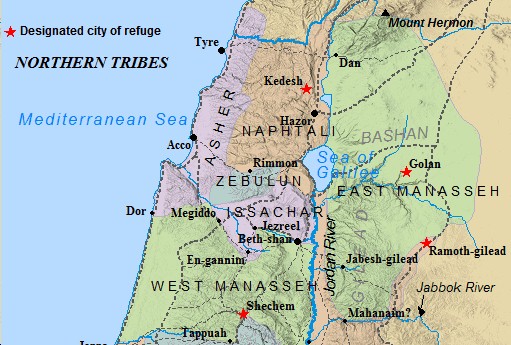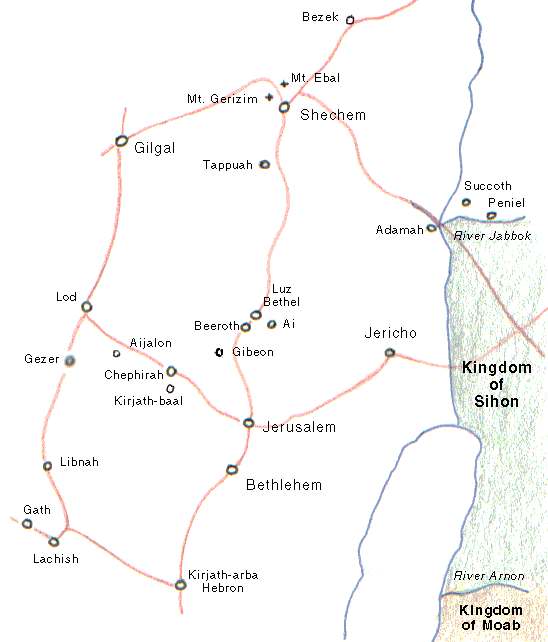Possessing Your Inheritance

Above map from "Tribe of Judah - Wikipedia":
http://en.wikipedia.org/wiki/Tribe_of_Judah
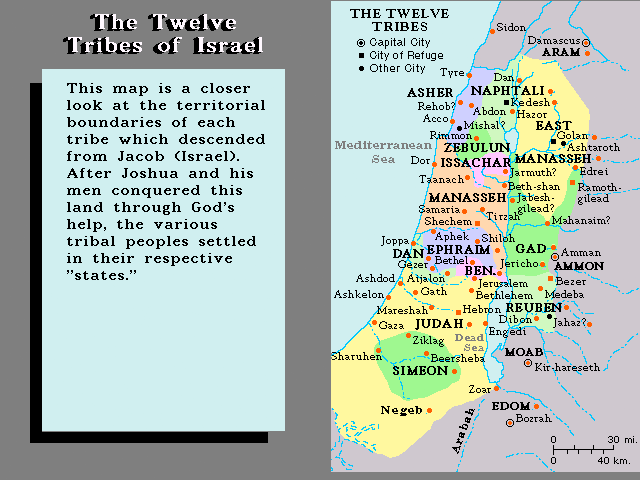
Above image from "Bible Cities and Maps": www.biblecities.com/cites__maps_Isrl-Sinai.htm
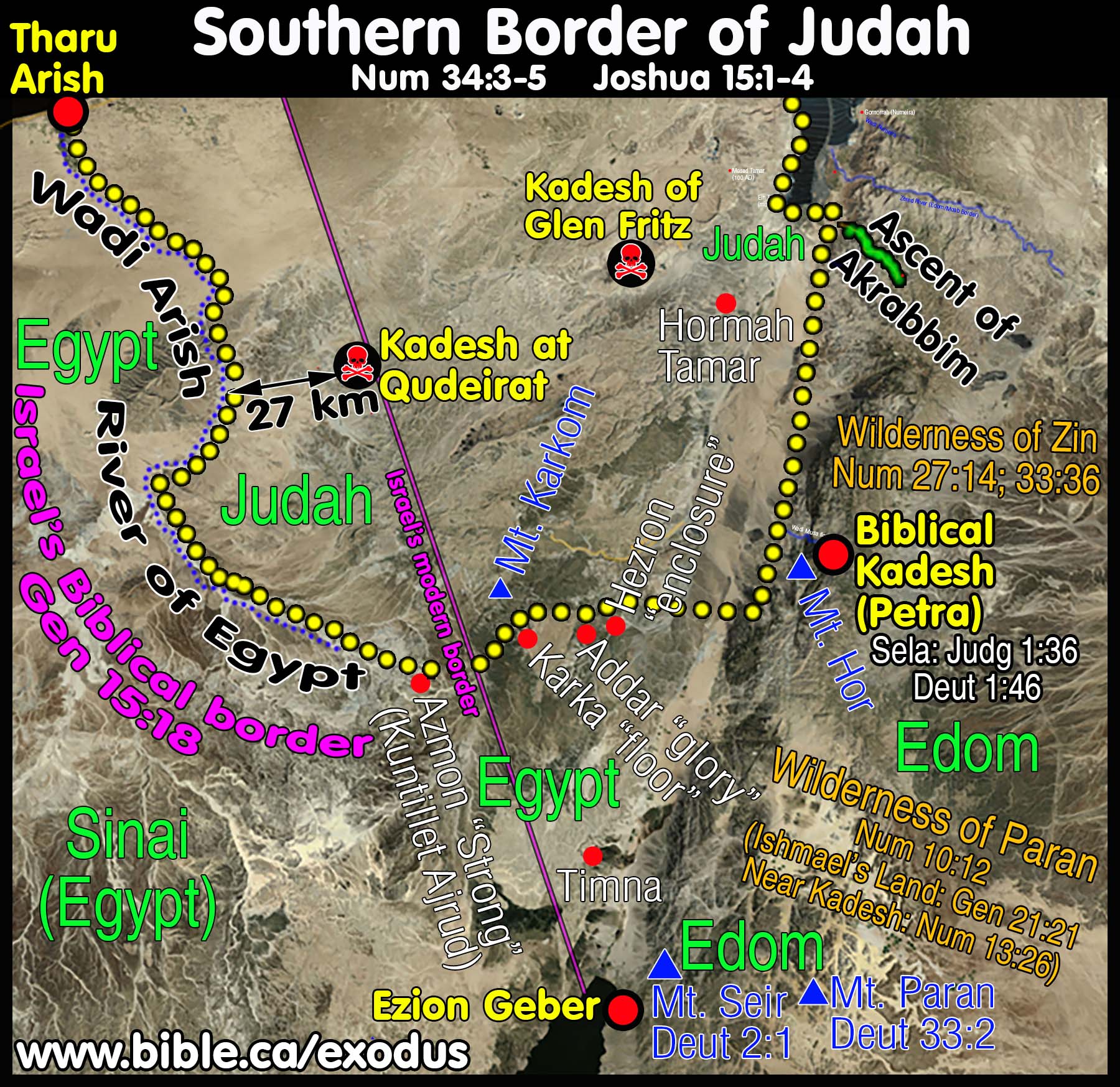
Above image from "Southern Border of Judah - 1400 BC":
www.bible.ca/archeology/bible-archeology-exodus-kadesh-barnea-southern-border-judah-territory.htm
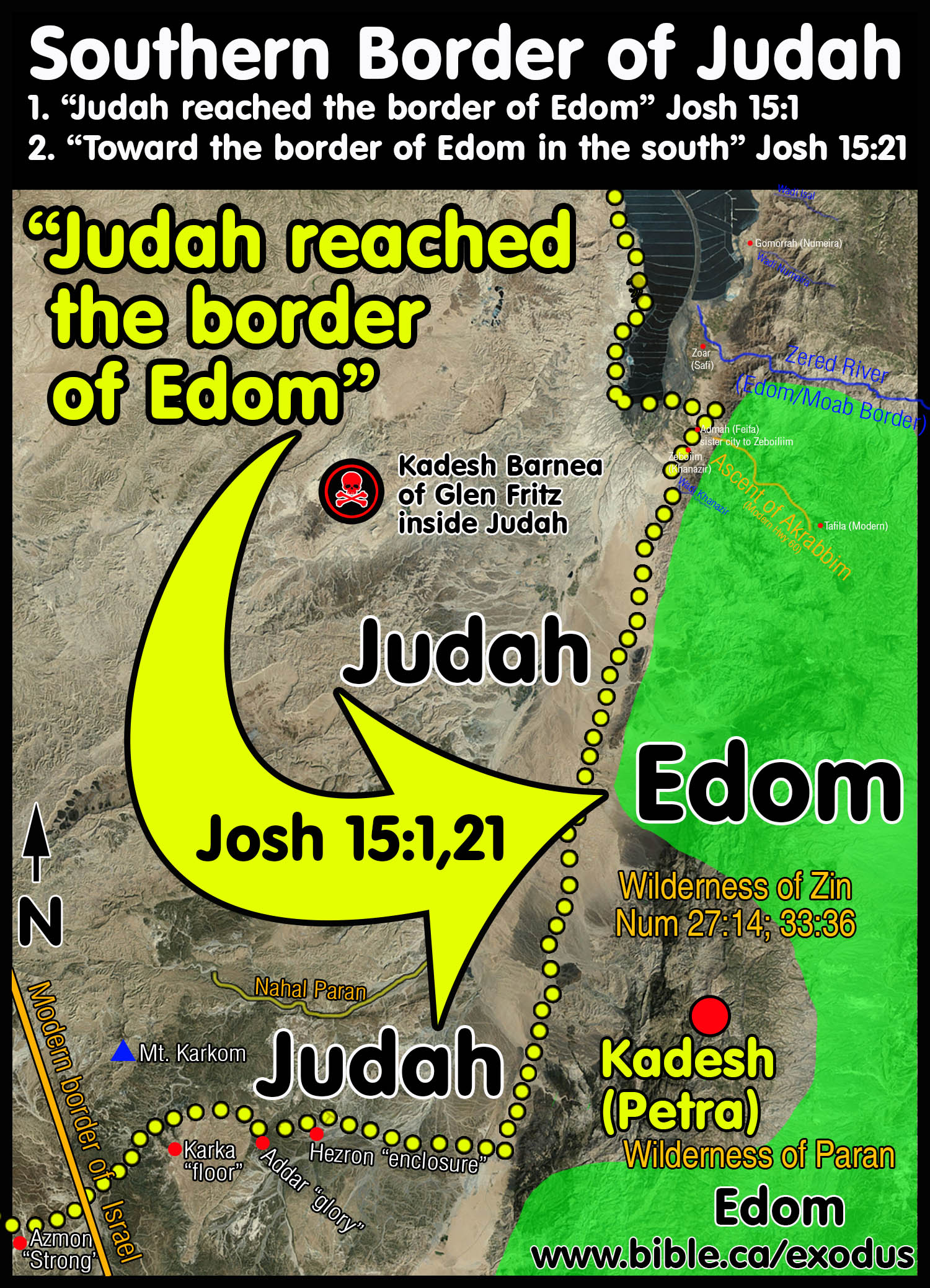
Above image from "The southern border of Judah: 1400 BC":
www.bible.ca/archeology/bible-archeology-exodus-kadesh-barnea-southern-border-judah-territory.htm
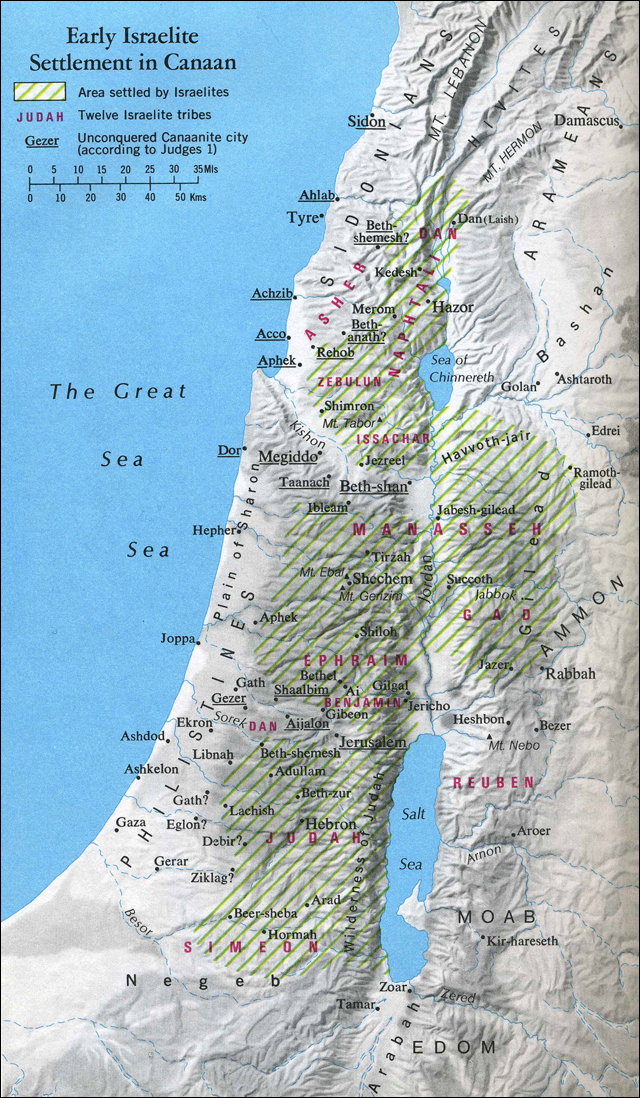
Above image from Bible Maps:
www.bible.ca/archeology/bible-archeology-exodus-kadesh-barnea-southern-border-judah-territory.htm
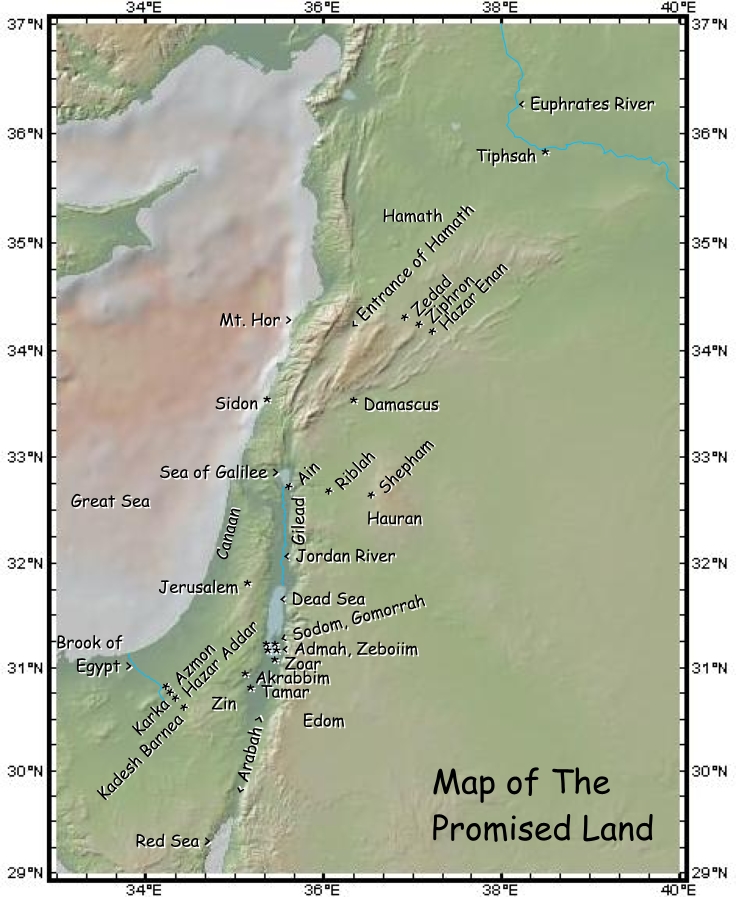
Above map is from www.biblicalzionist.com/map.html

Above map is from www.biblicalzionist.com/egyptbrook.html
The Bible uses the phrase, “the land of Israel” thirty two times. The first mention of the land of Israel is in connection to the battles between the Israelites and the Philistines. The last usage of this phrase ironically, is when the angel of the Lord appeared unto Joseph to advise him to take Mary and Jesus back into the land of Israel, because they which sought to kill Jesus were now dead. God himself in eleven instances describes the land of Israel as “my land” in the Bible. In over 20 instances throughout the Bible God uses the phrase, “give this land” to profess that He has specifically given the designated Promised Land unto Israel.
Judaism 101 - The Land of Israel: www.jewfaq.org/israel.htm: "Prayers for a return to Israel and Jerusalem are included in the daily prayers of most Jews even today as well as many holiday observances and special events. Living outside of Israel is viewed as an unnatural state for a Jew. The world outside of Israel is often referred to as "galut," which is usually translated as "diaspora" (dispersion), but a more literal translation would be "exile" or "captivity." Jews were exiled from the land of Israel by the Romans in 135 A.D, after they defeated the Jews in a three-year war, and Jews did not have any control over the land again until 1948 A.D. Today, about five million Jews, more than a third of the world's Jewish population, live in the land of Israel. Jews make up more than eighty percent of the population of the land. About half of all Israelis are Mizrachim, descended from Jews who have been in the land since ancient times or who were forced out of Arab countries after Israel was founded. Most of the rest are Ashkenazic, descended from Jews who fled persecution in Eastern Europe starting in the late 1800s, from Holocaust survivors, or from other immigrants who came at various times. About 1% of the Israeli population is the black Ethiopian Jews who fled during the brutal Ethiopian famine in the late 1980s and early 1990s. Jews continue to immigrate to Israel in large numbers. Immigration to Israel is referred to as aliyah (literally, ascension). Under Israel's Law of Return, any Jew who has not renounced the Jewish faith (by converting to another religion) can automatically become an Israeli citizen. There are a small number of secular Jews who are anti-Zionist. There is also a very small group of right-wing Orthodox Jews who object to the existence of the state of Israel, maintaining that it is a sin for us to create a Jewish state when the messiah has not yet come. Most Orthodox Jews support the existence of the state of Israel as a homeland, even though it is not the theological state of Israel that will be brought about by the messiah."
The Promised Land (Ha'Aretz HaMuvtahat) is a term used to describe the land promised to the descendants of Jacob. The promise is first made to Abraham (Genesis 15:18-21), then renewed to his son Isaac and to Isaac's son Jacob (Genesis 28:13). The Promised Land was described in terms of the territory from the River (Brook) of Egypt to the Euphrates river (Exodus 23:31) and was given to their descendants after the Exodus. (Deuteronomy 1:8). God intended for the Israelites to possess the land of the Philistines, but in point of fact the Israelites never did possess this land, not even during the reigns of David and Solomon when the borders of the Israelite kingdom were pushed to their farthest extremes:

Above map showing greatest extent of ancient Israel
is from "About Us Israelis":
http://about-us-israelis.blogspot.com/2011/05/about-us-israelis-promised-land-of.html
- Genesis 15:18-21: So the LORD made a covenant with Abram that day and said, “I have given this land to your descendants, all the way from the border of Egypt to the great Euphrates River— the land now occupied by the Kenites, Kenizzites, Kadmonites, Hittites, Perizzites, Rephaites, Amorites, Canaanites, Girgashites, and Jebusites.”
- Genesis 28:12-13: As he slept, he dreamed of a stairway that reached from the earth up to heaven. And he saw the angels of God going up and down the stairway. At the top of the stairway stood the LORD, and he said, “I am the LORD, the God of your grandfather Abraham, and the God of your father, Isaac. The ground you are lying on belongs to you. I am giving it to you and your descendants.
- Exodus 23:31: And I will fix your boundaries from the Red Sea to the Mediterranean Sea, and from the eastern wilderness to the Euphrates River. I will hand over to you the people now living in the land, and you will drive them out ahead of you.
- Deuteronomy 1:8: Look, I am giving all this land to you! Go in and occupy it, for it is the land the LORD swore to give to your ancestors Abraham, Isaac, and Jacob, and to all their descendants.’”
When Jesus returns to earth, He will be King over all of that land. The Israelites will be His people in the land, because it will belong to them as promised. In the chapters of Ezekiel 35-39 are described the attacks upon Israel near the end of the 70th week, as well as how the Lord will return to save the Israelites. Following that, Ezekiel 40-46 describes the millennial Temple and Holy Mountain, the land on which it will stand, and what will go on within that Temple. Then, Ezekiel wrote in Ezekiel 47:13-14: This is what the Sovereign LORD says: “Divide the land in this way for the twelve tribes of Israel: The descendants of Joseph will be given two shares of land. Otherwise each tribe will receive an equal share. I took a solemn oath and swore that I would give this land to your ancestors, and it will now come to you as your possession. The boundaries of the land given to the future Israelites, as the inheritance promised to Abraham, are described in Ezekiel 47:13-48:29. The Israelites will receive and live on the land of their inheritance during the Millennium.
- Ezekiel 47:13–20: This is what the Sovereign LORD says: “Divide the land in this way for the twelve tribes of Israel: The descendants of Joseph will be given two shares of land. Otherwise each tribe will receive an equal share. I took a solemn oath and swore that I would give this land to your ancestors, and it will now come to you as your possession. “These are the boundaries of the land: The northern border will run from the Mediterranean toward Hethlon, then on through Lebo-hamath to Zedad; then it will run to Berothah and Sibraim, which are on the border between Damascus and Hamath, and finally to Hazer-hatticon, on the border of Hauran. So the northern border will run from the Mediterranean to Hazar-enan, on the border between Hamath to the north and Damascus to the south. “The eastern border starts at a point between Hauran and Damascus and runs south along the Jordan River between Israel and Gilead, past the Dead Sea and as far south as Tamar.This will be the eastern border. “The southern border will go west from Tamar to the waters of Meribah at Kadesh and then follow the course of the Brook of Egypt to the Mediterranean. This will be the southern border. “On the west side, the Mediterranean itself will be your border from the southern border to the point where the northern border begins, opposite Lebo-hamath.
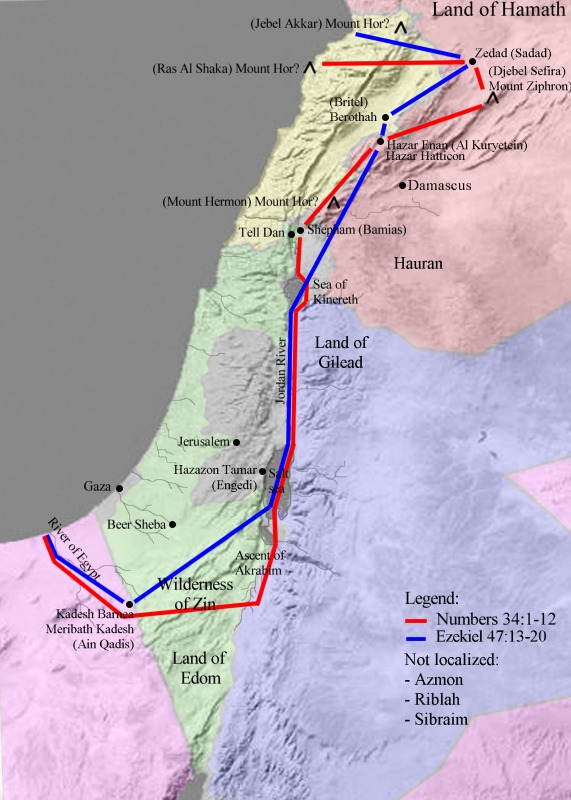
Above map from Wikipedia: Map Land of Israel
The NIV Study Bible sums up this chapter: "Judah is the first of the west bank tribes to have its territory delineated. First the outer limits are listed, then the area apportioned to Caleb and Othniel; finally the Canaanite cities allotted to the clans of Judah are named region by region." Do you know why the tribe of Reuben (the first born son) was not first to receive its boundaries?
Several items in Joshua show that this book was written while Joshua was still alive:
A. The ancient Canaanite names of cities are preserved.
1. Baalah (Kiriath-jearim) - 15:9
2. Kiriath-sannah (Debir) - 15:49
3. Kiriath-arba (Hebron) - 15:54
B. Canaanites were still in control of
1. Gezer - 16:10
2. Jebus - 18:28
C. Sidon, not Tyre, is listed as the main city of Phoenicia
While the borders listed in this chapter are meaningless to us, they were extremely important to the tribes. If the boundaries were not exactly defined, there could have been conflict between the tribes. Today, it is difficult to identify many of the cities and boundaries listed.
(1) The *allotment for the clans of the tribe of **Judah reached southward to the border of Edom, as far south as the wilderness of Zin.
- *allotment: inheritance. We have an inheritance too:
- Ephesians 1:11-14: Furthermore, because we are united with Christ, we have received an inheritance from God, for he chose us in advance, and he makes everything work out according to his plan. God’s purpose was that we Jews who were the first to trust in Christ would bring praise and glory to God. And now you Gentiles have also heard the truth, the Good News that God saves you. And when you believed in Christ, he identified you as his own by giving you the Holy Spirit, whom he promised long ago. The Spirit is God’s guarantee that he will give us the inheritance he promised and that he has purchased us to be his own people. He did this so we would praise and glorify him.
- Hebrews 9:15: That is why he is the one who mediates a new covenant between God and people, so that all who are called can receive the eternal inheritance God has promised them. For Christ died to set them free from the penalty of the sins they had committed under that first covenant.
- 1 Peter 1:4: and we have a priceless inheritance—an inheritance that is kept in heaven for you, pure and undefiled, beyond the reach of change and decay.
- **Judah
- Judah is given a chunk of land, outlined by God in detail. The territory of Judah was small; even had it included all within its ideal boundaries, it would have been no more than 2,000 square miles; actually it was nearer 1,300 square miles, of which nearly half was desert.
- We read in 19:1 that Simeon's possession was within Judah's territory. Eventually, Simeon, the smallest tribe except the tribe of Levi, will be swallowed up by the tribe of Judah.
- Matthew Henry said, "Judah and Joseph were the two sons of Jacob on whom Reuben’s forfeited birthright devolved. Judah had the dominion entailed on him, and Joseph the double portion, and therefore the two tribes were first seated: Judah in the southern part of the land of Canaan, and Joseph in the northern part."
- Philbeck via Coffman gives this approximation of Judah’s borders: “It ran from the lower tip of the Dead Sea southwest to Kadesh-barnea, and thence northwest to the Mediterranean Sea. This was the southern border. The northern border followed the line a traveler would normally follow in going from the northern tip of the Dead Sea (where Jordan enters) to the Mediterranean, Judah’s land included all the territory between the Dead Sea and the Mediterranean as restricted by the north and south borders. This included all the land of the Philistines. It did not include Jerusalem, but lay south of that city.”
- Judah did not subdue the Philistines who remained powerful enemies of Israel right down to the times of David and Solomon. As many have pointed out, these boundaries were more ideal than actual, dealing with what God had promised Israel rather than being restricted to what Israel was able to possess.
- Judah, although not the firstborn, was to become the pre-eminent of the tribes, as his father Jacob predicted in Genesis 49:8-10:
- “Judah, your brothers will praise you. You will grasp your enemies by the neck. All your relatives will bow before you. Judah, my son, is a young lion that has finished eating its prey. Like a lion he crouches and lies down; like a lioness—who dares to rouse him? The scepter will not depart from Judah, nor the ruler’s staff from his descendants, until the coming of the one to whom it belongs, the one whom all nations will honor.
(2) The southern *boundary began at the south bay of the Dead Sea,
- *boundary: Beginning with this chapter, and lasting through the next few, we cannot avoid the repetition of the word BOUNDARY. In the first 12 verses, the word appears 19 times. The word is used to delineate the actual geographical boundaries of Judah’s allotment, the details of God’s promise.
(3) ran south of *Scorpion Pass into the wilderness of Zin, and then went south of **Kadesh-barnea to ***Hezron. Then it went up to ****Addar, where it turned toward *****Karka.
- *Scorpion Pass was an ascending slope and mountain pass located on the southeast border of Judah near the Dead Sea and the Wilderness of Zin. It abounded in scorpions. (Young-blood). The boundaries of the Promised Land are given in Numbers 34. This pass was part of the unconquered Amorite territory in Judges 1:36.
- **Kadesh-barnea was a wilderness region between Egypt and the land of Canaan. It was from Kadesh Barnea that Moses sent spies into Canaan, 10 of whom returned a negative report while only 2 of whom returned a positive report. Appears ten times in the scriptures and means 'holy'.
- ***Hezron means 'enclosed'.
- ****Addar means 'ample, splendid'.
- *****Karka means 'pavement, ground, floor'.
(4) From there it passed to *Azmon until it finally reached the Brook of Egypt, which it followed to the Mediterranean Sea. This was their southern boundary.
- *Azmon means 'strong'.
- Israel now controlled the Land of Promise, but it was nowhere near the size which God had originally promised Abraham. The land now occupied by Israel might be a tenth of what God had promised Abram over a 500 years previous:
- Genesis 15:18: So the LORD made a covenant with Abram that day and said, “I have given this land to your descendants, all the way from the border of Egypt to the great Euphrates River—
(5) The eastern boundary extended along the Dead Sea to the mouth of the Jordan River. The northern boundary began at the bay where the Jordan River empties into the Dead Sea,
(6) went up from there to Beth-hoglah, then proceeded north of *Beth-arabah to **the Stone of Bohan.
(Bohan was Reuben’s son.)
- *Beth-arabah ('house of the partridge') was located southeast of Jericho.
- **the Stone of Bohan was a boundary marker on the northeast frontier of Judah. The stone of Bohan is apparently some sort of a commemorative stone laid down by Bohan of the tribe of Reuben. There is no implication that the tribe of Reuben lived in this area. Very likely, it referred to some great deed of valor in Israel’s war against the indigenous peoples there. This stone was erected in the slope of a hill (Joshua 18:17), whose exact location is unknown.
(7) From that point it went through the *valley of Achor to Debir, turning north toward **Gilgal,
which is across from the slopes of ***Adummim on the south side of the valley. From there the boundary
extended to the springs at En-shemesh and on to ****En-rogel.
- *valley of Achor: Joshua 7:24: Then Joshua and all the Israelites took Achan, the silver, the robe, the bar of gold, his sons, daughters, cattle, donkeys, sheep, goats, tent, and everything he had, and they brought them to the valley of Achor.
- **Gilgal: This Gilgal (wheel or circle) was the common name given to all the Israelite encampments, and may or may not be the Gilgal at which the Israelites first encamped following the crossing of the Jordan River which appears to have been on Benjamin’s northern boundary.
- ***Adummim: "the ascent or pass of Adummim" on the road from Jerusalem to Jericho. This road is the scene of the parable of the Good Samaritan.
- ****En-rogel (launderer’s well) was located on the border between Judah and Benjamin, just east of Jerusalem.
(8) The boundary then passed through the *valley of Ben-Hinnom, along the southern slopes of the Jebusites, where the city of Jerusalem is located. Then it went west to the top of the mountain above the valley of Hinnom, and on up to the northern end of the valley of Rephaim.
- *valley of Ben-Hinnom was a deep, narrow ravine west and south of Jerusalem. The Valley of Ben (the son of) Hinnom (Gehenna in Greek) is near Jerusalem. Hinnom = "lamentation". The Jews of Jesus’ day were so appalled by their ancestors’ participation in pagan worship by child sacrifice, that they turned this area into the garbage dump for Jerusalem. Many of Jesus’ metaphors for eternal judgment came from this landfill (fire, smoke, worms, stench - see Mark 9:44,46). The term Gehenna is used only by Jesus (except in James 3:6).A particular part of the valley was called Tophet, or the “fire-stove,” where the children were burned. Tophet is from the Hebrew word toph, “a drum,” because the cries of children here sacrificed by the priests of Moloch were drowned by the noise of drums.
- 2 Kings 23:10: Then the king defiled the altar of Topheth in the valley of Ben-Hinnom, so no one could ever again use it to sacrifice a son or daughter in the fire as an offering to Molech. The King referred to is Josiah.
- Jeremiah 7:31: They have built pagan shrines at Topheth, the garbage dump in the valley of Ben-Hinnom, and there they burn their sons and daughters in the fire. I have never commanded such a horrible deed; it never even crossed my mind to command such a thing!
- Jeremiah 32:35: They have built pagan shrines to Baal in the valley of Ben-Hinnom, and there they sacrifice their sons and daughters to Molech. I have never commanded such a horrible deed; it never even crossed my mind to command such a thing. What an incredible evil, causing Judah to sin so greatly!
- 2 Chronicles 28:3: He offered sacrifices in the valley of Ben-Hinnom, even sacrificing his own sons in the fire. In this way, he followed the detestable practices of the pagan nations the LORD had driven from the land ahead of the Israelites. The "He" refers to King Ahaz.

Above image from http://bethelbooks.com/wayoflife/19/
(9) From there the boundary extended from the top of the mountain to the spring at the waters of Nephtoah, and from there to the towns on Mount Ephron. Then it turned toward Baalah (that is, Kiriath-jearim).
(10) The boundary circled west of *Baalah to **Mount Seir, passed along to the town of Kesalon on the northern slope of Mount Jearim, and went down to ***Beth-shemesh and on to ****Timnah.
- *Baalah (lady, mistress) is the feminine form of Baal.
- **Mount Seir was about twelve miles west of Jerusalem. This does not refer to Mt. Seir in Edom.
- ***Beth-shemesh is known for the incident in 1 Samuel 6 where the cows brought back the Ark to the Israelites from the Philistines. It means 'house of the sun'. Many believe that this refers to sun worship. There are several cities by this name.
- ****Timnah was a town which was later associated with the exploits of Samson.
(11) The boundary then proceeded to the slope of the hill north of *Ekron, where it turned toward Shikkeron and Mount Baalah. It passed **Jabneel and ended at the Mediterranean Sea.
- *Ekron was the northernmost of the 5 chief cities of the Philistines and was located near the Mediterranean Sea about 35 miles west of Jerusalem.
- **Jabneel: It appears as though the Philistines occupied this territory until the time of Uzziah in I Chronicles 26:6, where we are told that he broke down the wall of Jabneh.
(12) The western boundary was the shoreline of the Mediterranean Sea. These are the boundaries for the clans of the tribe of Judah.
Very suddenly, seemingly almost out of place, the listing of the boundaries of Judah is interrupted by information about Caleb's inheritance and about his son-in-law and daughter. Any time you are reading along in the scripture and there's a sudden switch of commentary, you need to pay special heed to what and why this insertion is there! In fact, there is so much to learn from verses 16 - 19 that I'm separating them out for another study.
(13) The LORD *commanded Joshua to assign some of Judah’s territory to **Caleb son of Jephunneh. So Caleb was given the town of Kiriath-arba (that is, ***Hebron), which had been named after Anak’s ancestor.
- *commanded Joshua: God commanded and Joshua obeyed!
- **Caleb: After having been given his portion, 85 year old Caleb wastes no time in securing his land. He isn’t lazy and doesn’t make excuses claiming it is too hard. Again, he sets the standard for all tribes to follow.
- ***Hebron
- Hebron was located about nineteen miles south southwest of Jerusalem on a sloping hill. The ancient name for Hebron was Kiriath-arba (city of the four) which was named for Arba, one of the giant Anakim. Arba was the forefather of Anak. The city of Hebron is located dead center in the land allotted to the tribe of Judah.
- Numbers 13:22, 28: Going north, they passed through the Negev and arrived at Hebron, where Ahiman, Sheshai, and Talmai—all descendants of Anak—lived. (The ancient town of Hebron was founded seven years before the Egyptian city of Zoan.) ... But the people living there are powerful, and their towns are large and fortified. We even saw giants there, the descendants of Anak!
- Joshua 21:11-13: Kiriath-arba (that is, Hebron), in the hill country of Judah, along with its surrounding pasturelands. (Arba was an ancestor of Anak.) But the open fields beyond the town and the surrounding villages were given to Caleb son of Jephunneh as his possession. The following towns with their pasturelands were given to the descendants of Aaron the priest: Hebron (a city of refuge for those who accidentally killed someone), Libnah,
- Judges 1:10, 20: Judah marched against the Canaanites in Hebron (formerly called Kiriath-arba), defeating the forces of Sheshai, Ahiman, and Talmai. ... The town of Hebron was given to Caleb as Moses had promised. And Caleb drove out the people living there, who were descendants of the three sons of Anak.
- Having the story of Caleb here is an example for us that He will lead us to victory over whatever "enemies" or situations we face that can draw us away from God.
- Here is Caleb at 85, 45 years after God promised Him "victory" at this mountain. Caleb is ready to take on the giants who live in this area, not because he is bigger than they are, but Caleb knows that "he and God" make a majority and with God leading Caleb, he can't lose this battle.
- This area around Hebron was where he had spied out the land and he was now wanting permission to go in and conquer that area to destroy the giants that were there and to take this land for his possession. So we find him going down and conquering that land. Joshua and Caleb came into the area of Hebron into the Eshcol valley, where they grow such fabulous grapes. This is the territory that Caleb is now desiring.
(14) Caleb drove out the three groups of Anakites—the descendants of Sheshai, Ahiman, and Talmai, the sons of Anak.
(15) From there he went to fight against the people living in the town of *Debir (formerly called Kiriath-sepher).
- *Debir (place of the oracle) had been once conquered and held by Joshua, but it appears to have been retaken by the Canaanites.
(16) Caleb said, “I will give my daughter Acsah in marriage to the one who attacks and captures Kiriath-sepher.”
- There is a great lesson in verses 16-19 and I'm going to save that for the next time!
(17) Othniel, the son of Caleb’s brother Kenaz, was the one who conquered it, so Acsah became Othniel’s wife.
(18) When Acsah married Othniel, she urged him to ask her father for a field. As she got down off her donkey, Caleb asked her, “What’s the matter?”
(19) She said, “Give me another gift. You have already given me land in the Negev; now please give me springs of water, too.” So Caleb gave her the upper and lower springs.
(20) This was the homeland allocated to the clans of the tribe of Judah.
(21) The towns of Judah situated along the borders of Edom in the extreme south were *Kabzeel,
**Eder, ***Jagur,
- *Kabzeel (God gathers)
- **Eder (flock) was a town of southern Judah which was located four or five miles south of Gaza.
- ***Jagur (he dwells)
(22) *Kinah, Dimonah, Adadah,
- *Kinah (lamentation) was probably not far from the Dead Sea.
(23) *Kedesh, **Hazor, ***Ithnan,
- *Kedesh (holy)
- **This Hazor (enclosure), not to be confused with the city by the same name in northern Palestine
- ***Ithnon (constant)
(24) Ziph, *Telem, **Bealoth,
- *Telem (a lamb)
- **Bealoth (possessors)
(25) Hazor-hadattah, Kerioth-hezron (that is, Hazor),
- Hadattah (new) is a word describing Hazor, a city in the territory of Judah called Hazor-hadattah in the NRSV, NASB, REB, NIV, but treated as two separate cities in the KJV and NKJV.
(26) Amam, Shema, *Moladah,
- *Moladah (origin) was a city in southern Judah, about 14 miles southwest of Beersheba.
(27) Hazar-gaddah, Heshmon, *Beth-pelet,
- *Beth Pelet (house of escape)
(28) *Hazar-shual, **Beersheba, Biziothiah,
- *Hazar Shual (village of the jackal)
- **Beersheba (well of the seven or well of the oath) was the chief city in the Negev, was located midway between the Mediterranean Sea and the southern end of the Dead Sea, and was considered to be the southern extremity of the Promised Land.
(29) *Baalah, **Iim, ***Ezem,
- *Baalah (lady, mistress) is the feminine form of Baal.
- **Iim (heaps, ruins)
- ***Ezem (mighty)
(30) *Eltolad, Kesil, *Hormah,
- *Eltolad: According to folklore, it means the place where children may be obtained, which therefore identifies it as a city where the evil pagan ritual of child sacrifice was practiced.
- ***Hormah (complete destruction)
(31) *Ziklag, **Madmannah, ***Sansannah,
- *Ziklag: 1 Samuel 27:6-12: So Achish gave him the town of Ziklag (which still belongs to the kings of Judah to this day) and they lived there among the Philistines for a year and four months. David and his men spent their time raiding the Geshurites, the Girzites, and the Amalekites—people who had lived near Shur, toward the land of Egypt, since ancient times. David did not leave one person alive in the villages he attacked. He took the sheep, goats, cattle, donkeys, camels, and clothing before returning home to see King Achish. “Where did you make your raid today?” Achish would ask. And David would reply, “Against the south of Judah, the Jerahmeelites, and the Kenites.” No one was left alive to come to Gath and tell where he had really been. This happened again and again while he was living among the Philistines. Achish believed David and thought to himself, “By now the people of Israel must hate him bitterly. Now he will have to stay here and serve me forever!”
- **Madmannah means dunghill
- ***Sansannah (thornbush)
(32) *Lebaoth, Shilhim, Ain, and **Rimmon—***twenty-nine towns with their surrounding villages.
- *Lebaoth (man of heart), the same as Beth Lebaoth (house of lionesses)
- **Rimmon (pomegranate)
- ***twenty-nine towns: thirty six are listed, possibly because some listed are part of the "surrounding villages."
(33) The following towns situated in the western foothills were also given to Judah: Eshtaol,
*Zorah, Ashnah,
- *Zorah was the home of Manoah, the father of Samson.
(34) Zanoah, *En-gannim, **Tappuah, ***Enam,
- *En-gannim = "Fountain of gardens". A town in the plains of Judah, north-west of Jerusalem, between Zanoah and Tappuah.
- **Tappuah means “apple tree”.
- ***Enam (two fountains)
(35) Jarmuth, Adullam, *Socoh, **Azekah,
- *Socoh: Goliath and the Philistines will take Soco and use the area nearby as a base of operations as they prepare to demolish Israel. Rehoboam repossessed this city and fortified it after the revolt of the northern tribes (II Chronicles 11:17) and the Philistines took this city back when Ahaz was in power (II Chronicles 28:18)
- **Azekah:
- A town in the northwest of Judah situated on one of the western passes leading from the coast to the Judean Hills. The Philistines gathered nearby to fight Israel in the days of Saul (I Samuel 17:1). Among the cities fortified by Rehoboam for the defense of Judah (2 Chronicles 11:5, 9), Azekah was one of the last two cities to withstand Nebuchadnezzar (Jeremiah 34:7), the other being Lachish. Azekah is mentioned among the towns of Judah settled at the time of the return from the Babylonian Exile (Nehemiah 11:30).
- Joshua 10:10: The LORD threw them into a panic, and the Israelites slaughtered great numbers of them at Gibeon. Then the Israelites chased the enemy along the road to Beth-horon, killing them all along the way to Azekah and Makkedah.
(36) *Shaaraim, Adithaim, Gederah, and Gederothaim—fourteen towns with their surrounding villages.
- *Shaaraim means two gates and we find it again in 1 Samuel 17:52: Then the men of Israel and Judah gave a great shout of triumph and rushed after the Philistines, chasing them as far as Gath and the gates of Ekron. The bodies of the dead and wounded Philistines were strewn all along the road from Shaaraim, as far as Gath and Ekron.
(37) Also included were Zenan, Hadashah, Migdal-gad,
(38) Dilean, *Mizpeh, Joktheel,
- *Mizpeh: Six places in the Old testament were named Mizpeh.
(39) Lachish, Bozkath, *Eglon,
(40) Cabbon, Lahmam, Kitlish,
(41) *Gederoth, **Beth-dagon, ***Naamah, and ****Makkedah—sixteen towns with their surrounding villages.
- *Gederoth (sheepfolds)
- **Beth Dagon (House of the god Dagon): Dagon is a god whose name first occurs circa 2500 b.c. and onward throughout Mesopotamia, particularly in Canaan at Ugarit, Phoenicia and in the five cities of the Philistines. We have at least four cities with the name Beth-dagon, which means shrine to Dagon. The fact that this god was well-known lends credence to the several different areas having the same name. Josephus mentions one of these locations in Antiquities, XII, viii, I, as being near Jericho. 1 Maccabees 10:83–84 refers to a temple to the god Dagon in Azotus, which is Ashdod. We have an actual Biblical mention of a city by that name in Joshua 19:17 as a border city for Asher east of Mr. Carmel. Then we have this particular Beth-dagon, found only here. There is a mention of a Beth-dagon by Rameses III as one of the conquered areas and Sennacherib in 701 b.c. also mentioned Beth-dagon as a conquered city.
- ***Naamah (pleasant)
- ****Makkedah (place of shepherds) was a royal city of the Canaanites near which Joshua killed the five (5) kings of the Amorites who had formed a military alliance against the Israelites.
(42) Besides these, there were *Libnah, Ether, **Ashan,
- *Libnah (whiteness) was later assigned to the Aaronites as a Levitical city.
- **Ashan (smoke) was a Levitical city in the low country of Judah and is thought to have been located about 5 miles northwest of Beersheba.
(43) *Iphtah, Ashnah, Nezib,
- *Iphtah (God breaths through)
(44) Keilah, *Aczib, and Mareshah—nine towns with their surrounding villages.
(45) The territory of the tribe of Judah also included Ekron and its surrounding settlements and villages.
(46) From Ekron the boundary extended west and included the towns near Ashdod with their surrounding villages.
(47) It also included *Ashdod with its surrounding settlements and villages and **Gaza with its settlements and villages, as far as the Brook of Egypt and along the coast of the Mediterranean Sea.
- *Ashdod was one of the 5 main Philistine cities, situated 3 miles from the Mediterranean coast and 20 miles north of Gaza and was located on the highway connecting Egypt and Syria.
- **Gaza was the southernmost city of Canaan and was situated on the great caravan routes between Mesopotamia and Egypt at the junction of the trade route from Arabia. Gaza is called Azzah in Hebrew, meaning "strong" or "fortified". It sits on the Mediterranean Sea, about 50 miles southwest of Jerusalem and 12 miles south of Ashkelon. It was the southernmost of the 5 cities of the Philistines. From Gaza we get the word "gauze", a product of the cotton grown in the area.
- A number of names of Canaanite (Kinahni) cities come up in the Amarna Tablets: Ashkelon, Gaza, Gezer, Hazor, Joppa, Lachish, Megiddo, Shunem and others.
(48) Judah also received the following towns in the *hill country: Shamir, Jattir, Socoh,
- *hill country: The hill country of Judah is by far the most characteristic part of that tribe's possessions; it was on account of the shelter of these mountain fastnesses that this people managed to hold their own against their neighbors and hide away from the conquering armies of Assyria and Egypt. No other section of the country was so secluded and protected by her natural borders. It was the environment of these bare hills and rugged valleys which did much to form the character and influence the literature of the Jews. The hill country is an area well defined, about 35 miles long and some 15 broad, and is protected on three sides by natural frontiers.
- Read more: Judah, Territory Of (From International Standard Bible Encyclopedia): www.bibletools.org/index.cfm/fuseaction/Def.show/RTD/isbe/ID/5191/Judah-Territory-Of.htm#ixzz1mJbDrYZp
(49) Dannah, Kiriath-sannah (that is, Debir),
- *Kiriath-sannah had been populated by the Anakim and became a Levitical city
(50) Anab, *Eshtemoh, Anim,
- *Eshtemoh became a city assigned to the priests and a city of refuge.
(51) *Goshen, Holon, and Giloh—eleven towns with their surrounding villages.
- *This Goshen was a town in the mountains of southwest Judah which is not to be confused with the districts in Egypt nor southern Palestine of the same name.
(52) Also included were the towns of Arab, Dumah, Eshan,
(53) *Janim, **Beth-tappuah, Aphekah,
- *Janim (Janum) (he slumbers)
- **Beth Tappuah (house of apricots)
A find that confirms the Book of Joshua was found on the walls of an Egyptian temple at Medinet Habu. The walls contain a list of cities that Rameses II (1304-1238) recorded as enemy towns. The cities are
represented on the wall by men bearing shields. Within the shields are the names of the cities. Among the list of cities are Janum, Aphekah and Hebron.
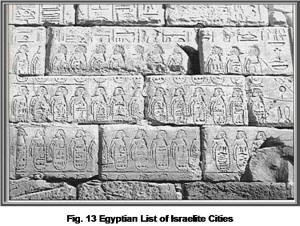
Above image from
www.truthnet.org/biblicalarcheology/6/conquestcanaan.htm
(54) Humtah, Kiriath-arba (that is, *Hebron), and Zior—nine towns with their surrounding villages.
- *Hebron: Near Hebron was the Cave of Machpelah in which Abraham and Sarah were buried (Genesis 25:5-11).
(55) Besides these, there were Maon, *Carmel, Ziph, Juttah,
- *Carmel (garden/orchard of God)
(56) *Jezreel, Jokdeam, Zanoah,
- *Jezreel: There are 2 villages named Jezreel.
(57) Kain, Gibeah, and Timnah—ten towns with their surrounding villages.
(58) In addition, there were Halhul, *Beth-zur, **Gedor,
- *Beth Zur (house of rock) was a city in the mountains of Judah on the road from Bearsheba to Jerusalem.
- **Gedor (wall)
(59) Maarath, *Beth-anoth, and **Eltekon—six towns with their surrounding villages.
- *Beth Anoth (house of the goddess Anoth)
- **Eltekon (founded by God)
(60) There were also Kiriath-baal (that is, *Kiriath-jearim) and **Rabbah—two towns with their surrounding villages.
- *Kiriath-jearim = "city of thickets" or "city of forests". Evidently an ancient, Semitic "high place", hence, the name "Kiriath-Baal". Kiriath Baal was a fortified city that originally belonged to the Gibeonites.
- **Rabbah (great)
(61) In the wilderness there were the towns of *Beth-arabah, Middin, **Secacah,
- *Beth Arabah (house of the desert)
- **Secacah (thicket) was a city in the Valley of Achor in the Wilderness of Judah, near the northwest shore of the Dead Sea.
(62) Nibshan, the *City of Salt, and **En-gedi—six towns with their surrounding villages.
- *City of Salt: Probably Qumrân on the NW edge of the Dead Sea, the area of the Essenes.
- **En Gedi (spring) was an oasis on the barren western shore of the Dead Sea about thirty-five (35) miles southeast of Jerusalem. En Gedi was watered by a hot spring yielding an abundance of fresh water.
- In this list of 119 cities and towns are several duplications.
- Josephus (Ant., book v. chap. i.) says, "To Judah belonged the northern part of Judea up to Jerusalem."
(63) But the tribe of Judah could not drive out the Jebusites, who lived in the city of *Jerusalem, so the Jebusites live there among the people of Judah to this day.
- *Jerusalem: Apparently, Israel took Jerusalem but then lost again since we know that David conquered it again later:
- Judges 1:8: The men of Judah attacked Jerusalem and captured it, killing all its people and setting the city on fire.
- 2 Samuel 5:6-10: David then led his men to Jerusalem to fight against the Jebusites, the original inhabitants of the land who were living there. The Jebusites taunted David, saying, “You’ll never get in here! Even the blind and lame could keep you out!” For the Jebusites thought they were safe. But David captured the fortress of Zion, which is now called the City of David. On the day of the attack, David said to his troops, “I hate those ‘lame’ and ‘blind’ Jebusites. Whoever attacks them should strike by going into the city through the water tunnel.” That is the origin of the saying, “The blind and the lame may not enter the house.” So David made the fortress his home, and he called it the City of David. He extended the city, starting at the supporting terraces and working inward. And David became more and more powerful, because the LORD God of Heaven’s Armies was with him.
- The city of Jerusalem was on a hill and had fortifications around it. You had to come up from the valley. It was just too easy to defend. They weren’t able to take the city of Jerusalem. The way it was finally conquered was interesting. Today in recent excavations they have excavated the shaft that Joab climbed to get into the city in order to open the gates so that David’s men could take the city of Jerusalem. You can go today and down near the Spring of Gihon, the Jebusites had dug a shaft through the rock, down to the spring, so that they would let their buckets down and lift the water up. That way they had a supply of water. What always caused the fall of the city was of course the absence of food and usually the need for water. So they would often times dig these tunnels. Hezekiah later dug a tunnel from the Spring of Gihon, 1,700 feet over to the Pool of Siloam. You can walk through that tunnel that Hezekiah dug. The Jebusites before then, had a shaft that went on up and the men of David couldn’t figure out how they were getting water in the city. Finally they figured that there must be this shaft that existed. So Joab, (and the shaft is probably four or five feet wide), at night, he climbed up this shaft and got into the city and opened the city for David’s men to conquer. But at the time of Joshua the city of Jerusalem was not yet taken.
- An incomplete occupation: Jerusalem remains in Canaanite hands. Yet, no matter how hard the struggle, with God’s promise, and God’s help, we can triumph - there is really no good excuse for why this city must stay in Canaanite hands until the time of David.
- So why end the chapter on this bad note? The answer is to show that those from the tribe of Judah failed to "trust in God" as He had asked. In a "spiritual sense", they had failed to take for themselves all that God had desired for them.
APPLICATION and LESSONS to LEARN:
- Just as Caleb's faith became his son-in-law's faith, we are responsible to passing on our faith to the next generation and responsible to being sure our children marry spouses of faith. We also see Caleb's faith in his daughter - and her daring to stand up for herself. Caleb's example of faith was more valuable to his family than the property he claimed for them.
- It is important also for us as Christians to use whatever means that we have also to inspire faith in the Lord in those around us.
- I would encourage you today to follow the example of Caleb and be a man or woman of faith and take a hold of your inheritance in Christ. Step out and claim that land that you have been given and be bold and claim those promises from God’s word which belong to you as a child of God.
- Let’s be risk-takers like Caleb for the Lord. Life is too short to live it conservatively and not take risks in serving Christ. Step out and see if the Lord will back you up just as He backed up Caleb when he stepped out to apprehend his inheritance in the land.
- Accept the “lot” that you have been given by the Lord in this life. Learn to be content in the Lord today and don’t think for one moment that you need one single thing to be added to or taken away from your life in order for you to be content. Remember, if you cannot be content in the Lord today, there is nothing that could be added to or taken away from your life that would cause you to be content.
- God has a specific "plan" marked out for our lives. We don't know how long we have in this life to "work" that specific territory or how long we are to stay in that territory. What God does want is for us to realize that just as He marks out a specific plan for the "Jewish tribes", so God has marked out a life for each of us. So how do we know what our "territory is"? It starts by asking God. Often it is just a feeling of "comfort" of knowing this is where God wants us to be.
- God wants us to study the story of Caleb as an inspiration of what to do when we get our inheritance portion. It does not mean God gives each of us a piece of Israel. It means that God has a specific plan that He desires in the life of every believer. That plan does not mean we just "sit there and do nothing with our lives". It means we "work " our territory in that we live out our lives with the desire to please God in all that we do.
- For us, our "allotted territory" is wherever we live and whatever ministry God has called for us to get involved in. We too must defeat the "spiritual demonic giants" that live in our territory. We can defeat any negative issue no matter how big it is as long as we are willing to trust in God to lead us to that victory. That is the story of Caleb and hopefully, that is our story as well.
- If you always choose the easy way, asking for the peaceful valleys, you will never see God’s power displayed to enable you to take a mountain. Seek out the mountains like Caleb did, and you will witness God doing things through your life that can be explained only through His mighty presence.
- The inheritance is ours to possess and enjoy. Achsah proved that, by asking, she was able to receive the springs that were needed for her enjoyment of the land. If there are areas of my life that deter me from the enjoyment of all that God has for me in Christ, then deal with them before they spoil the enjoyment of the possession. The possession itself cannot be spoilt but the appreciation and pleasure of it can. We need great care.
- Caleb conquered with physical weapons to claim a physical inheritance; we conquer with spiritual weapons to claim a spiritual inheritance in Christ. Ephesians 1:3
- In order to overcome as Caleb did…
- We must be wholly yielded to the Lord.
- We must know and believe God’s promises.
- We must keep our heart and mind fixed on our inheritance.
- Remember, this land was Israel's INHERITANCE long before they actually entered the land and POSSESSED the Promised Land. This is the difference between position and rewards. We too have an inheritance, but we must grasp it. Think about the "prodigal son". He blew his inheritance. But, he was still his father's son. Remember, while he was eating the hogs' food, he decided to return to his father's house, not as a son, but as a slave. But the father received him as a son. BUT, the inheritance was still gone, even though he could once again sit at his father's table and enjoy his fellowship once again.
NOTES:

